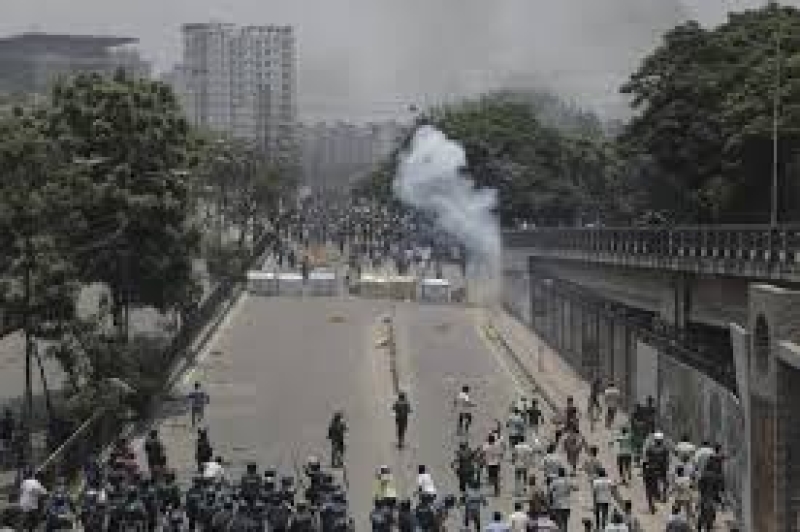- Irregularities, injustice will no longer be accepted in politics: Jamaat Ameer |
- 2 arrested in Jhenaidah for allegedly selling madrasa student |
- Koko’s wife campaigns for Tarique in Dhaka-17 |
- Bangladeshi Expats Cast 4.58 Lakh Postal Votes |
- IMF Forecasts Bangladesh GDP to Rebound to 4.7% in FY26 |
UN Report Criticizes Bangladesh Security Forces in 2024 Uprising

A recent report from the United Nations Office of the High Commissioner for Human Rights (OHCHR) has sharply criticized Bangladesh's police and security forces for their conduct during the 2024 uprising, claiming they were responsible for “systematic and widespread extrajudicial killings” as part of a coordinated repression strategy.
Released at the OHCHR's Geneva headquarters on Monday, the report details the violent role of police and other security agencies during the unrest, which claimed the lives of approximately 1,400 individuals. According to the UN report, a majority of the deaths were caused by security forces using firearms against protesters.
“OHCHR has reasonable grounds to believe that the police, along with paramilitary forces, engaged in violent suppression of protesters, leading to numerous extrajudicial killings as part of a systematic strategy of repression,” the report states.
The report’s section, titled "Use of Force Violations by Police, RAB, and BGB, Including Extrajudicial Killings," meticulously outlines the legal expectations for law enforcement during protests, according to international human rights law. It claims that between July 15 and August 5, security forces failed to adhere to these principles, violating the right to life and personal security.
While the report acknowledges that the protest movement aimed to disrupt daily life with road blockades and urban shutdowns, it notes that some demonstrators resorted to violence against public property and police forces. However, it emphasizes that these actions did not justify the excessive use of force employed by the security forces.
The report condemns the use of firearms by law enforcement, stating that such force should only be employed when absolutely necessary and targeted at individuals posing an imminent threat of death or serious injury. The OHCHR found that security forces often used lethal weapons indiscriminately, shooting into crowds that included both peaceful protesters and violent rioters.
One of the most alarming findings concerns the killing of Abu Sayeed in Rangpur on July 16. Based on victim testimonies, videos, and police reports, the OHCHR has strong evidence suggesting police involvement in Sayeed’s death, which occurred after a clash between Chhatra League supporters and protesters. The report states that police began firing gas shells and blank bullets before moving to more lethal measures, including the use of military rifles.
Additionally, the report underscores that security forces used shotguns loaded with metal pellets—often considered non-lethal by Bangladesh’s law enforcement—as a tool for crowd control. This led to a pattern of indiscriminate shooting, targeting peaceful protesters alongside those engaged in violence.
Senior officials from law enforcement agencies acknowledged that the use of shotguns was standard procedure for dispersing crowds, but the OHCHR report highlights how such weaponry was often deployed without regard for proportionality or necessity.
The report also cites numerous instances where security forces opened fire on peaceful protesters, including incidents at Jatrabari in Dhaka, where extensive shooting began on July 17. The violence peaked on August 5, with reports suggesting that close to 400 people were killed during the "March on Dhaka."
The OHCHR further reported that on the final day of the protests, despite large-scale mobilization, the Army and Border Guard Bangladesh (BGB) largely failed to control the situation as planned. Multiple senior officials testified that the Army did not deploy its promised forces, and the BGB allowed thousands of protesters to bypass their checkpoints.
The report calls for further investigation into the killings on August 5, particularly by the BGB, outside Dhaka, and emphasizes the need for accountability for the widespread violations of human rights during the protests.
In conclusion, the UN rights agency urges the Bangladeshi authorities to review their use of force policies and ensure adherence to international human rights standards when dealing with protests.

